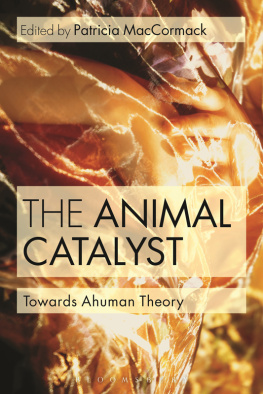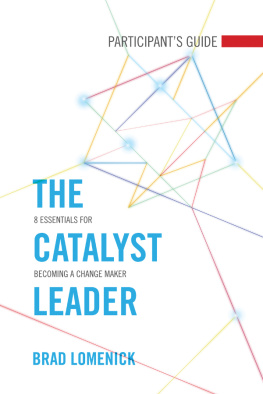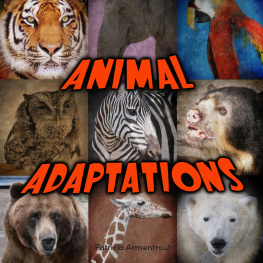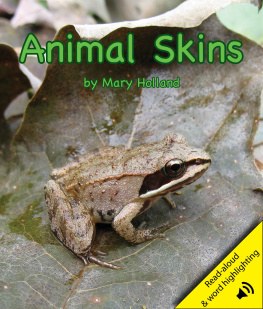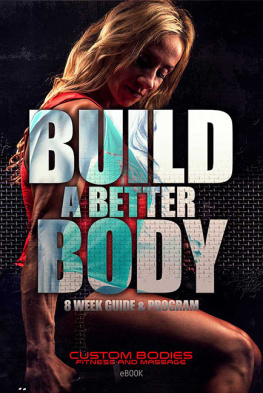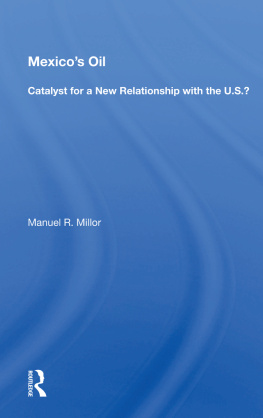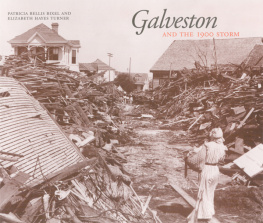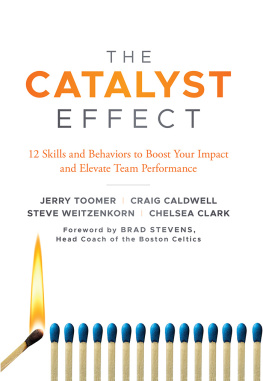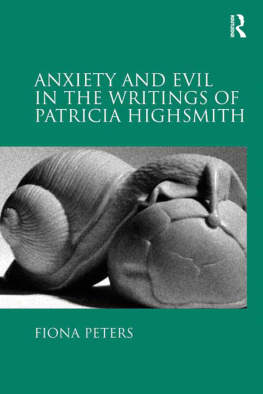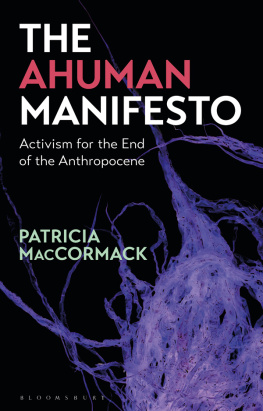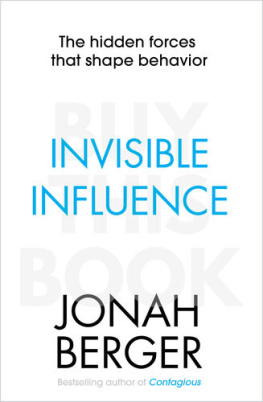MacCormack Patricia - Animal Catalyst
Here you can read online MacCormack Patricia - Animal Catalyst full text of the book (entire story) in english for free. Download pdf and epub, get meaning, cover and reviews about this ebook. publisher: Bloomsbury Publishing, genre: Science. Description of the work, (preface) as well as reviews are available. Best literature library LitArk.com created for fans of good reading and offers a wide selection of genres:
Romance novel
Science fiction
Adventure
Detective
Science
History
Home and family
Prose
Art
Politics
Computer
Non-fiction
Religion
Business
Children
Humor
Choose a favorite category and find really read worthwhile books. Enjoy immersion in the world of imagination, feel the emotions of the characters or learn something new for yourself, make an fascinating discovery.
- Book:Animal Catalyst
- Author:
- Publisher:Bloomsbury Publishing
- Genre:
- Rating:3 / 5
- Favourites:Add to favourites
- Your mark:
- 60
- 1
- 2
- 3
- 4
- 5
Animal Catalyst: summary, description and annotation
We offer to read an annotation, description, summary or preface (depends on what the author of the book "Animal Catalyst" wrote himself). If you haven't found the necessary information about the book — write in the comments, we will try to find it.
Animal Catalyst — read online for free the complete book (whole text) full work
Below is the text of the book, divided by pages. System saving the place of the last page read, allows you to conveniently read the book "Animal Catalyst" online for free, without having to search again every time where you left off. Put a bookmark, and you can go to the page where you finished reading at any time.
Font size:
Interval:
Bookmark:
The Animal
Catalyst
ALSO AVAILABLE FROM BLOOMSBURY
The Sexual Politics of Meat (20th Anniversary Edition) , Carol J. Adams
Beyond Animal Rights , Tony Milligan
The Animal
Catalyst
Towards Ahuman Theory
EDITED BY
PATRI CIA MACCORM ACK

For Steve Cain and Maria Desposito
CONTENTS
Patricia MacCormack
Carol J. Adams
John T. Maher
Danielle Sands
Charles J. Stivale
Colin Gardner
Charlie Blake
Chrysanthi Nigianni
Claire Colebrook
Jason Wallin
Ruth McPhee
Patricia MacCormack
Carol J. Adams is an American writer, feminist and animal rights advocate. She is the author of several books, including The Sexual Politics of Meat (now in its 20th anniversary edition) and The Pornography of Meat (2004). Adams has published more than 100 articles or entries in journals, books, magazines and encyclopaedias on vegetarianism, animal rights, domestic violence and sexual abuse. She is internationally recognized as one of the most influential writers on animal activism, anti-speciesism and feminism, and her work continues to influence in these areas.
Charlie Blake is an executive editor of Angelaki: Journal of the Theoretical Humanities and was until recently Head of the Department of Film, Media and Communications at the Liverpool Hope University. He has recently co-edited studies on Sadism, Masochism and Philosophy , on Animality, Posthumanity and Transhumanism , and has published on Bataille and Divine Dissipation , Sonic Spectrality , the Politics of Apiasophy and Pornotheology . He is currently working on studies of Immanence and Speculative Materialism and Deleuze and Affect .
Claire Colebrook is Edwin Erle Sparks Professor of English at the Penn State University. Her most recent books include Theory and the Disappearing Future (2012), co-authored with Tom Cohen and J. Hillis Miller, and Death of the Posthuman (2013).
Colin Gardner is Professor of Critical Theory and Integrative Studies at the University of California, Santa Barbara, where he teaches in the departments of Art, Film & Media Studies, Comparative Literature, the History of Art & Architecture as well as the College of Creative Studies. He is the author of Joseph Losey (2004); Karel Reisz (UP 2006); and a new critical study of Samuel Becketts film and television work entitled Beckett, Deleuze and the Televisual Event: Peephole Art (2012).
Patricia MacCormack is Professor of Continental Philosophy in English, Communication, Film and Media at Anglia Ruskin University, Cambridge. She has published extensively on Guattari, Blanchot, Serres, Irigaray, queer theory, teratology, body modification, posthuman theory, animal rights and horror film. Her work includes Inhuman Ecstasy ( Angelaki ), Becoming-Vulva ( New Formations ), The Great Ephemeral Tattooed Skin ( Body and Society ), Necrosexuality ( Queering the Non/Human) Unnatural Alliances ( Deleuze and Queer Theory ), Vitalistic FeminEthics ( Deleuze and Law ) and Cinemasochism: Time, Space and Submission ( The Afterimage of Gilles Deleuzes Film Philosophy) . She is the author of Cinesexuality and the co-editor of The Schizoanalysis of Cinema . Her most recent book is Posthuman Ethics .
John T. Maher is an attorney, author and adjunct professor of Animal Law at Touro Law Center. John studied at Harvard and Columbia Universities and is a graduate of the University of Pennsylvania, where he majored in economics. He received his J.D. from New York Law School and encourages corporate responsibility for more humane treatment of animals by his clients. John has served as counsel for the Best Friends Animal Society, Companion Animal Protection Society and various other animal organizations. He regularly speaks from a post-humanist perspective on animal issues in the areas of legal personhood for animals, synthetic biology and the effect of anthropocentric environmental change and globalization on animals. His direct interventions on the part of animals have included humans, wolves, bears, hawks, dogs, cats, rats, pigeons, deer, camels, cows, horses, raccoons, frogs and turtles.
Ruth McPhee was awarded her PhD in Film Studies from Kings College, London, in 2009 and lectures in the department of English, Communication Film and Media at Anglia Ruskin University, Cambridge. She has published on feminist theory and the cinema of Catherine Breillat, and has an article (with Patricia MacCormack) forthcoming on non-reproductive semen in InterAlia . Her book Female Sexuality in Contemporary Western Cinema: Masochism, Ethics and Aesthetics is forthcoming.
Chrysanthi Nigianni is an independent researcher teaching in the sociology and psycho-social program at the University of East London. She is the editor of Deleuze and Queer Theory (EUP, 2009), Deleuzian Politics ( New Formations , Issue 68) and Undutiful Daughters (Palgrave, 2012). She is currently completing a monograph on film philosophy and the notion of the exhausted.
Danielle Sands is Fellow at the Forum for European Philosophy and Visiting Lecturer at the Queen Mary, University of London, where she teaches literary theory, feminism and aesthetics. Her work has been published in Textual Practice , Times Higher Education , Parrhesia , The Journal of Theoretical and Philosophical Psychology and The Encyclopaedia of Literary and Cultural Theory .
Charles J. Stivale is Distinguished Professor of Classical and Modern Languages, Literatures and Cultures at Wayne State University, Detroit. He is the author of numerous books and journal articles, which include Gilles Deleuze: Image and Text (co-edited with Eugene W. Holland and Daniel W. Smith), The Two-Fold Thought of Deleuze and Guattari, Intersections and Animations , The Art of Rupture, Narrative Desire and Duplicity in the Tales of Guy de Maupassant , Gilles Deleuzes ABCs, The Folds of Friendship , and the translation of Flix Guattari: Thought, Friendship, and Visionary Cartography, by Franco Berardi (Bifo) . He was the editor of Gilles Deleuze: Key Concepts and Modern French Literary Studies in the Classroom: Pedagogical Strategies .
Jason J. Wallin is Associate Professor of Media and Youth Culture in Curriculum in the Faculty of Education at the University of Alberta, Canada, where he teaches courses in visual art, media studies and cultural curriculum theory. He is the author of A Deleuzian Approach to Curriculum: Essays on a Pedagogical Life , co-author of Arts-Based Research: A Critique and Proposal (with jan jagodzinski), and co-editor of Deleuze, Guattari, Politics and Education (with Matt Carlin). Jason is Assistant Editor for the Journal of Curriculum and Pedagogy and reviews editor for Deleuze Studies . Jason was raised by wolves.
Editing this book is an inspiring reminder that there is hope for nonhuman life, and for this reason thanks go to every act of grace and compassion towards all animals exerted by humans, in whatever stage of ahumanity they may find themselves. Thanks to the marvellous and creative contributors for their patience and imaginative innovations of the topics addressed, to Carol Adams for remaining an inspiration of activism and for allowing the reprinting of her chapter, to John Maher for precision and patience, to Danielle Sands for clarity and velocity, to Charles Stivale for letting me voraciously pounce on his paper in San Francisco and claim it for this volume, to Colin Gardner, who not only contributed an incandescent piece but tirelessly proofed the final version during my Leverhulme visit to Santa Barbara, to Charlie Blake, who rightly invoked Lovecraft in our shared Necronomic dreaming, to Chrysanthi Nigianni for a last-minute addition that mesmerizes, to Claire Colebrook, another victim of my pounce, who allowed me to take her Tate paper for this volume, to Jason Wallin, who, at a moments notice, produced a paradigm-changing work, to Ruth McPhee, my friend and many times saviour during philosophical crises who also helped complete this volume. Thanks to my editors at Bloomsbury, Liza Thompson and Rachel Eisenhauer, to Neil Jordan at Ashgate for permission to reprint, in distorted form, some of my Posthuman Ethics . Thanks also to Fitzy Fitzpatrick, Phil Hine, Jacinta MacCormack, Tony Moleta, Leon Tencer, activists, vegans and abolitionists everywhere, and most of all, my effulgent Watcher James Campbell Fowler and the miraculous nonhuman who allows me to share her life, Jane.
Next pageFont size:
Interval:
Bookmark:
Similar books «Animal Catalyst»
Look at similar books to Animal Catalyst. We have selected literature similar in name and meaning in the hope of providing readers with more options to find new, interesting, not yet read works.
Discussion, reviews of the book Animal Catalyst and just readers' own opinions. Leave your comments, write what you think about the work, its meaning or the main characters. Specify what exactly you liked and what you didn't like, and why you think so.

